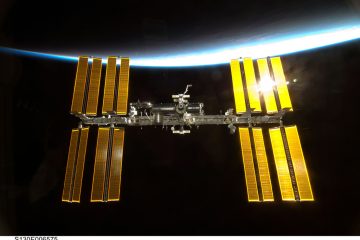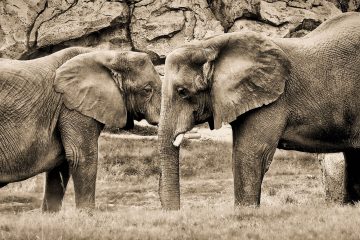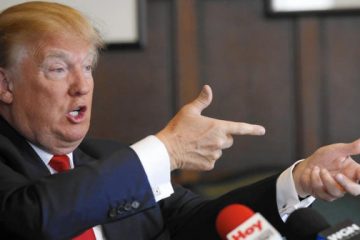The Health-Security Nexus: Reassessing Priorities after Covid-19
While Covid-19 has spurred debate about the need to elevate public health as a security concern, the securitisation of health presents both opportunities and trade-offs that need to be considered if we are to reallocate military spending to prepare for the next pandemic. The devastating toll of the Coronavirus pandemic has ignited a debate about the intersection of public health and national security. Once recognised as global leaders in pandemic preparedness, the United States and the United Kingdom have struggled to integrate policy responses to Covid-19 into existing security frameworks and to allocate resources accordingly. Indeed, public health spending in both countries pales in comparison to spending on counter-terrorism, even though more American lives have been lost to the pandemic than in all US wars since World War II and the number of Covid-19 deaths in the UK far exceed those attributed to terrorism in the last 50 years. Consequently, some academics and policymakers have questioned whether the prevailing notion of national security—a state’s capacity to defend its territory and …
The Ineffective International Response to the Rohingya Crisis ─ A Paradox
The longstanding Rohingya crisis in Myanmar has generated massive human rights violations, becoming a humanitarian disaster. It is not only an internal matter for Myanmar, as it has destabilized the regional tranquility of South and Southeast Asia and triggered a global outcry. In this article, I will illustrate why major states, such as China, India, Russia, and the US, have adopted a policy of overlooking the Rohingya crisis. I have intentionally excluded the potential for a prominent leadership role from the already fragile Muslim world because of both their general absence from the central world leadership and their preoccupation with their own domestic crises. The Rohingya are the largest community among eight prominent Muslim groups in Myanmar and have lived in its Rakhine State (formerly Arakan) for generations. They are envisaged by the nation’s government and Buddhist population as illegal Bengali immigrants who came from what is …
When the technical is political: Colombia’s export of security expertise
In a farewell speech to Colombia’s armed forces last year just prior to leaving office, ex-president Juan Manuel Santos boasted: “Today we have the best armed forces in our history.” Proudly, he added: “We’re a global reference!” And indeed, it seems as though Colombia had opened a new chapter. Since the 2016 peace accords with the country’s largest guerrilla organisation, the FARC (Revolutionary Armed Forces of Colombia), the nation appears to be on an uphill climb. With the FARC at the negotiation table, the story goes, the country was finally able to look ahead and dedicate its resources to transition and reconstruction: the reintegration of former combatants, the redistribution of formerly occupied territories, and the recovery of an economy weakened by decades …

The Interplay between Outer Space Security and Terrestrial Global Security
US president Donald Trump recently announced the establishing of a “Space Force,” a new branch of the military to project US military might into outer space. In doing so, he followed up on his March 2018 statement that his administration “recognizes that space is a war-fighting domain, just like the land, air and sea.” While such ideas are neither wholly new nor exclusively held by president Trump, they seem to challenge the fundamental principle of outer space as a global commons, which was enshrined in the 1967 Outer Space Treaty. Questions of outer space security are not just important for their own sake, as this article will show, they have wide-reaching implications for global security. Global security and space security …

US Space Policy and Strategic Culture
The United States has a consistent Strategic Culture, centered on a sense of exceptionalism, values-driven foreign policy, casualty aversion, as well as strong leadership. These features reflect in its space policy and ambitions, where the US has cooperated with other nations but assumes a position of natural leader. It remains to be seen how this role will evolve – although the sense of exceptionalism may endure – as new actors, including private companies, make their way into space. Why Strategic Culture Matters Developed in the 1970s, “Strategic Culture” is a concept used to analyze the role of culture and national idiosyncrasies in shaping national security decisions. As with many paradigms developed during the Cold War, it emerged in the context of …

Irrelephant: The Misleading Connections Between Terrorism and Ivory Poaching
The world is experiencing an ‘environmental crime crisis’. Dwarfed only by the trafficking of drugs, humans and counterfeit goods, the illegal wildlife trade is estimated to be the fourth largest type of transnational organised crime. But compared to the smuggling of bullets and bodies, wildlife crime is vastly under-researched. Most people have not even heard of the world’s most trafficked mammal, the humble and far from headline-grabbing pangolin. Yet one area of this booming illicit trade receives more attention than most: poaching for ivory and rhino horn. Driven by growing Asian prosperity, particularly in Vietnam and China, a revived market for ivory and horn has expanded to unprecedented heights for modern times. Accompanying this growth is a narrative which connects …

How effective is UN peacekeeping?
Peacekeeping is at the centre of the UN’s efforts to maintain international peace and security. Today, more than 100,000 soldiers and police from 125 countries are serving as blue-helmeted UN peacekeepers around the world. These soldiers and police are endeavouring to keep the peace within, or between, more than 20 conflict-affected states and territories. How effective are UN peacekeeping efforts? There have been spectacular failures (Rwanda) and notable successes (El Salvador) but how great is the contribution of UN peacekeeping overall? Scholars are divided on this question. Virginia Page Fortna’s seminal work on the impact of UN peacekeeping operations (UNPKOs) suggests that the presence of UNPKOs significantly improves the chances of peace surviving following the cessation of hostilities. In the …

Even more unpredictable: Trump’s U-turn on Syria
“When you kill innocent children – innocent babies – babies – little babies with a chemical gas that is so lethal, people were shocked to hear what gas it was, that crosses many, many lines. Beyond a red line, many, many lines,” Trump said when asked about Tuesday’s chemical weapons attack in Syria that killed some 80 civilians and injured many more. Thursday night he swiftly followed through with his remarks, launching missile strikes on Shayrat airfield in Syria, where the attack is suspected to have originated. Commentators have been quick to point out Trump’s remarkable U-turn on Syria. From his ‘America First’ rhetoric, to his cosying up to Putin and repeated statements that he thinks ‘many very bad things …









